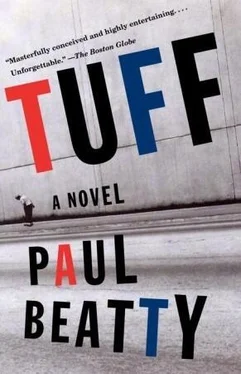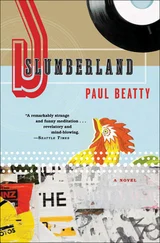Despite all the organizational infighting and bad grammar, nothing else made sense to her. What organizations other than OAAU were thinking globally, had a charter for racial brotherhood — and a cache of weapons? The yippies had explosives and California pot connections, but lived off trust funds. The Peace Corps was a Kennedy front fraught with peaceniks too naive to understand they were nothing more than hut-to-hut corporate salespeople, setting up company trading posts in virgin markets, installing just enough electricity to power the soda machines. The Communists? The first two years were fun: the thrill of being subversive; tossing around Party vernacular in the cell meetings; the vodka; pretending to have read all the Trotsky; outing Hollywood auteurs; posing for a Communist Party ID card photo. Then things took a turn for the worse. Cynicism and paranoia took precedence over revolutionary praxis. Everyone became a possible infiltrator; the vodka was no longer used to toast union victories, but to drown the sorrows of African corruption; the bull sessions became “Ralph Ellison is a traitor” laments; and the ID card became an orange “Go Directly to Jail” card in a deadly game of Monopoly.
There was a strange dissonance in the fact that though Inez was poor, fatigued, and immersed to her neck in the world’s misery, life in the OAAU was good. Hands in her sweater pocket, her chicken feathers rubbed to the quill, she ignored her mother’s daily ultimatums, busying herself with plotting the Revolution. Dissidents from around the world were her lovers: South American grenadiers, African middle-class Bolsheviks, and one long-term relationship with a Chinese spy whose cover was serving as Lyndon B. Johnson’s valet. The secret agent ended the relationship with a note stuck to the refrigerator with a carrot magnet.
Dearest Inez,
LBJ is growing suspicious. Always asking, “Isn’t Nomura a Japanese name? How can this woman in New York be your cousin if she’s a Jap and you’re a Chink? Where are my slippers?” We must part before El Jefe gets the bright idea to call Hoover. In addition, you sleep too late and your eggs are runny. No regrets my sweet, we remain united in our love for the workers’ struggle. Go outside and have fun.
Big Hug,
Agent #9906 M.I.D.
P.S.
By the time you read this, the Knicks will have beaten the Cincinnati Royals by five points, and Malcolm X will be dead.
The day Malcolm was shot, Inez drank herself numb at Showman’s Tavern, listening to the jukebox shuffle between Lunceford, Holiday, Eckstine, Parker, and twenty nickels of Etta James. The regulars commiserated over long-neck beers, thankful they still had Martin Luther King Jr.’s persistence and Father Divine’s ten-cent dinners. Told you they’d get that nigger. Shit, I give the playboy reverend four years tops. He talking about poor people and Indochina — that’s fucking with The Man’s money .
Returning home, Inez drunkenly stumbled through the Theresa’s lobby. The once-lavish hotel struggled to hold on to its glorified past. Its cracked and pitted marble pillars barely supported the sagging ceiling; a cave-in looked inevitable. If the structural decay didn’t bring the walls down, then the newly integrated downtown hotels would. Now that Malcolm had been shot, the secret was out: more than the spokesperson for black pride had been slain; Harlem itself was dead.
Inez followed a rutted trail that swathed through the faux-Turkish carpet to the lounge for one last gin-and-tonic to brace her against a temperamental radiator and a thin blanket. On the white Philco television Ed Sullivan was introducing a wonderful, wonderful entertainer, a Texan who’d be a really, really big star. Shyly Trini Lopez strode on stage wearing a rhinestone jacket and a warm smile, the oversized electric Gibson guitar held to his breast like a six-string shield. In a soft, chirping voice he began to sing. I like to be in A-mer-i-ca!.. Ev’rything free in A-meri-ca! Inez decided she too would like to be in America, start a community center in Harlem. Find the next Malcolm in Harlem.
The laughter had died down. Now Winston was sitting two steps below Yolanda, her crotch serving as his headrest. “Ms. Nomura?”
“Yes, Winston?”
“You like my Cap’n Crunch idea?”
“It’s ingenious, but impractical and scary. When are you going to call me Inez?”
“Inez? What kind of name is that for a nigger?”
As Yolanda toyed with Winston’s eyebrows, his shoulders began to sink from his earlobes. To Inez he looked a spoiled seraph — Lucifer a week before the fall from grace.
“I’m not a nigger,” she said.
“You used to be.”
Two years ago, before he met Yolanda, Winston and Inez were in some ways closer than he and Fariq. After a neighborhood scrap or a bad day at school, he’d often seek her out for solace. They’d walk into the bowels of Central Park, Winston cursing a storm and working off his anger with sets of chin-ups on a thick cottonwood branch belonging to his favorite tree. Finally he’d drop to the ground, more tired than angry, and tell stories about the tree. It was underneath these boughs a ten-year-old Winston watched a group of boys rape and beat a jogger, kicking her motionless body into the mulberry bushes and leaving her for dead. When he was a little older he nearly decapitated bicyclists by knotting the ends of a section of fishing wire to carpenter nails, stretching the filament across the footpath, and hammering the nails into the trees about shoulder high. At night the line was invisible. An unsuspecting cyclist would pedal past the trees and the fishing line would catch him under the chin, lifting the biker off the bicycle so cleanly, the riderless bike would coast straight down the hill and into the waiting hands of Winston and his friends. There they’d pile on the bicycle, one on the seat, one on the handlebars, one on the rear lug nuts, two on the frame, a troupe of Chinese acrobats forming a jittery pyramid and riding into the night. Then Winston would begin to cry. It was under this tree Winston had shanked Kevin Porter. Holding his hand, Inez would ask what it was like to stab someone. “It’s like putting your hand into shower steam. Weightlessness. Nothing on the other end of the knife but a nigger’s sticky body heat.” Winston would read the disappointment, envy, and fear in Inez’s face, and would feel the need to ease her conscience with the rationalization: “You know, it’s not the stab wound that kills them, it’s the bacteria. Most motherfuckers that get stuck die from septic poisoning and shit.”
From the bottom stair, Charles pulled out a cigar and looked up through the ghetto’s version of the glass ceiling. Winston, Fariq, and the rest of the colored executive board were still debating exactly what would be this summer’s business venture. Using his box cutter, Charles dissected the cigar lengthwise, spilling the tobacco onto the sidewalk. While he peeled away the inner leaf to thin the wrapper, the iridescence of the diamond stud in Fariq’s ear caught Charles’s eye. “Fariq, how you get that earring?”
“Scrambling, nigger, you know that.”
Charles nodded. “Okay, then can we cut dreaming about this Cap’n Crunch, Black Enterprise madness and talk about how we really going to make some ends meet this summer?”
Winston knew what Charles was hinting at: a return to drug dealing, this time him doing more than steering customers. “Stop right there, I ain’t selling no drugs this summer.”
“We don’t sell no heroin or coke. We’ll sell this shit.” He held the bag of marijuana in the air. “Won’t make as much money, but hey.”
Charles sprinkled marijuana onto what remained of the tobacco casing. Rolling the blunt tightly, he expertly licked an edge, applying just the right amount of saliva, and sealed it like an envelope. “Pharmaceutical’s good money, kid. Tuffy, Brooklyn got you shook, son? Shit, some niggers bum rush my spot and put a gun to my wig, I’d be jumpy too.”
Читать дальше












